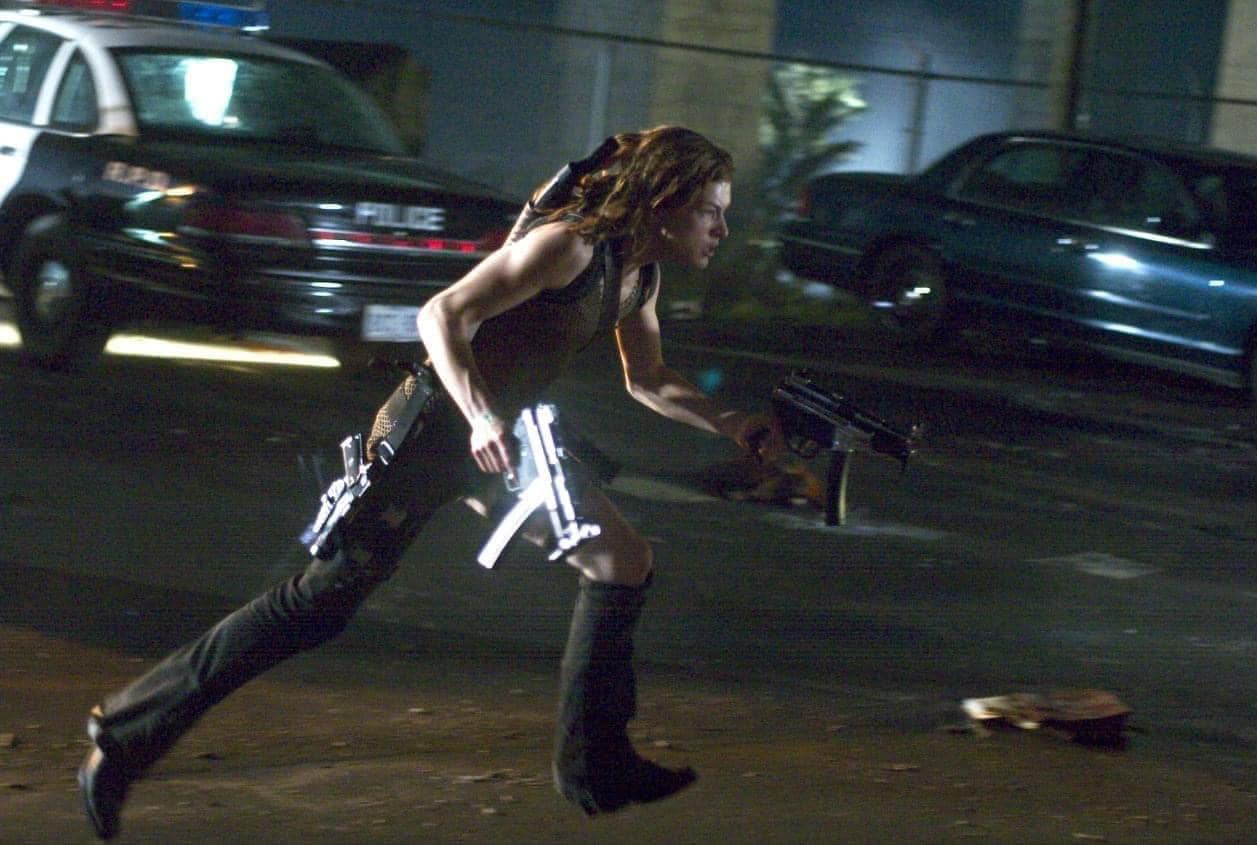Resident Evil: Apocalypse (2004) is a science fiction horror film directed by Alexander Witt, serving as the second installment in the Resident Evil film series, which is based on the popular video game franchise of the same name. The film continues the story of Alice, portrayed by Milla Jovovich, as she battles against the sinister Umbrella Corporation and the hordes of undead it has unleashed.
Set in the aftermath of the original Resident Evil film, Apocalypse takes the action from the confined setting of the Hive laboratory to the streets of Raccoon City, which has been overrun by the T-virus, turning its inhabitants into flesh-eating zombies. The Umbrella Corporation, responsible for the outbreak, seals off the city, leaving the remaining survivors to fend for themselves.
Alice, having been experimented on by Umbrella, now possesses enhanced strength, agility, and reflexes, making her a formidable force against the undead. Milla Jovovich’s portrayal of Alice is once again marked by her fierce determination and physical prowess, establishing her as the franchise’s iconic heroine.
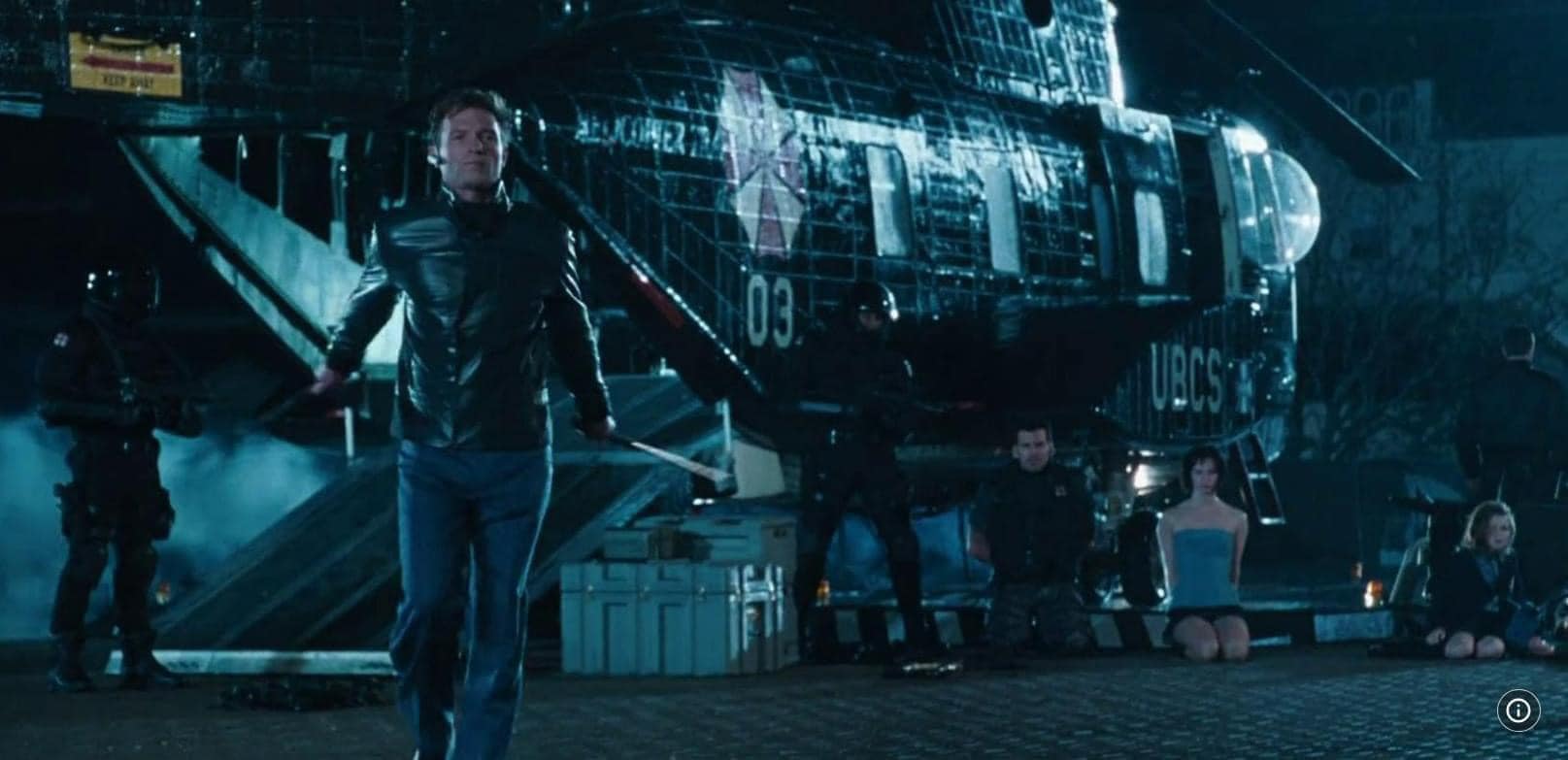
The film introduces several new characters from the video game series, including Jill Valentine (Sienna Guillory), a former S.T.A.R.S. member who teams up with Alice to survive the chaos, and Carlos Oliveira (Oded Fehr), a member of Umbrella’s special forces who realizes the corporation’s true nature. Sienna Guillory’s performance as Jill Valentine captures the character’s tough, no-nonsense attitude, making her a fan favorite.
One of the key antagonists in Resident Evil: Apocalypse is the Nemesis, a monstrous bioweapon created by Umbrella, programmed to hunt down and eliminate survivors, particularly the remaining S.T.A.R.S. members. The Nemesis is a towering, unstoppable force, providing some of the film’s most intense and memorable action sequences.
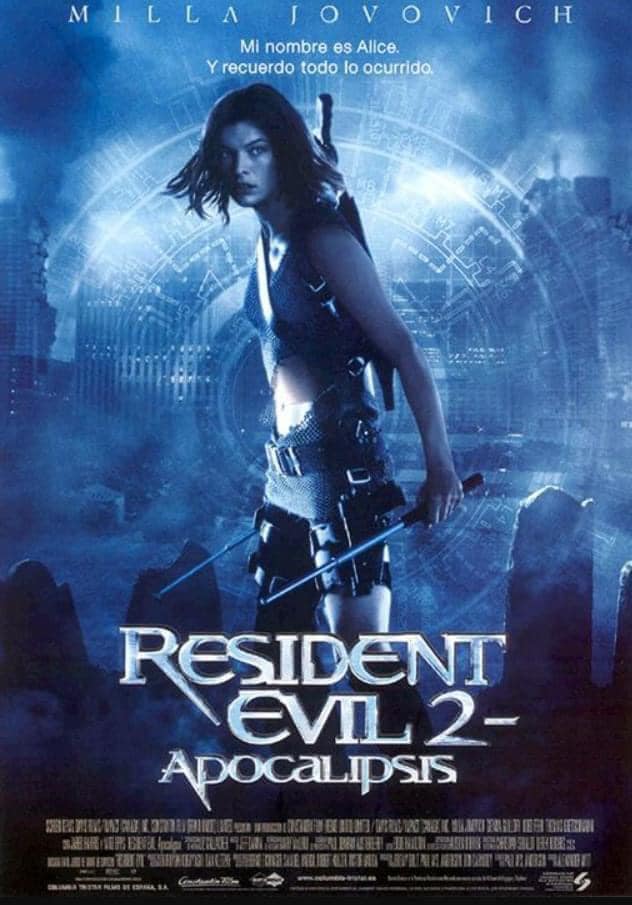
Alexander Witt’s direction brings a fast-paced, action-oriented approach to the film, emphasizing explosive set pieces, close-quarters combat, and relentless zombie attacks. The film’s cinematography, with its dark, moody lighting and frenetic camera work, enhances the sense of urgency and danger as the characters navigate the apocalyptic cityscape.
Resident Evil: Apocalypse leans heavily into the action-horror genre, with an emphasis on adrenaline-pumping moments and high-stakes survival. While the film maintains a sense of horror, particularly with its grotesque creatures and tense encounters, it also embraces a more bombastic, video game-like tone, featuring plenty of gunfights, explosions, and martial arts combat.
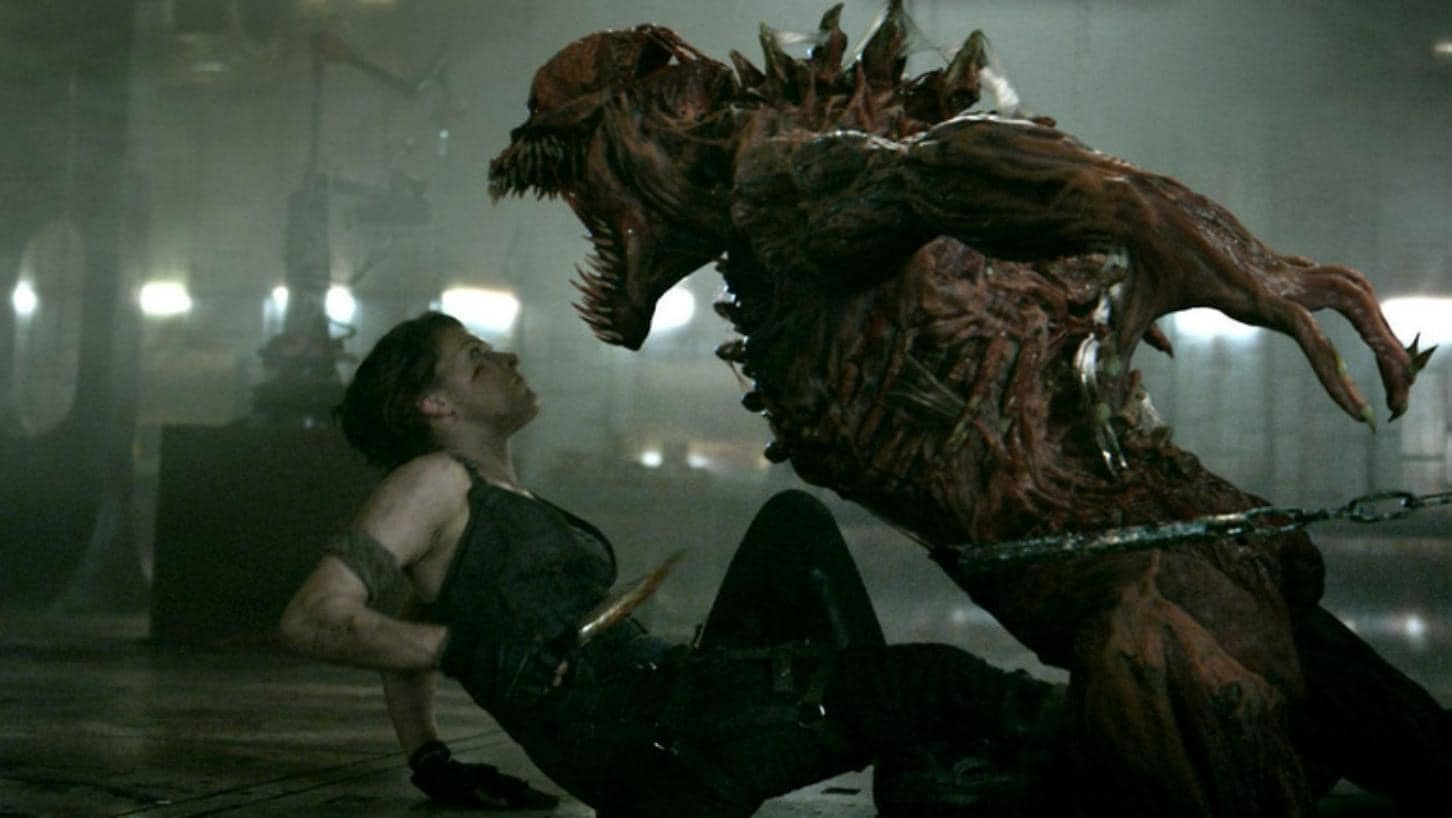
The film’s special effects and creature designs, including the Nemesis and various mutated zombies, are a highlight, delivering the grotesque and terrifying visuals expected from the franchise. The movie’s score, composed by Jeff Danna, complements the action with a mix of intense, driving rhythms and eerie, atmospheric tones.
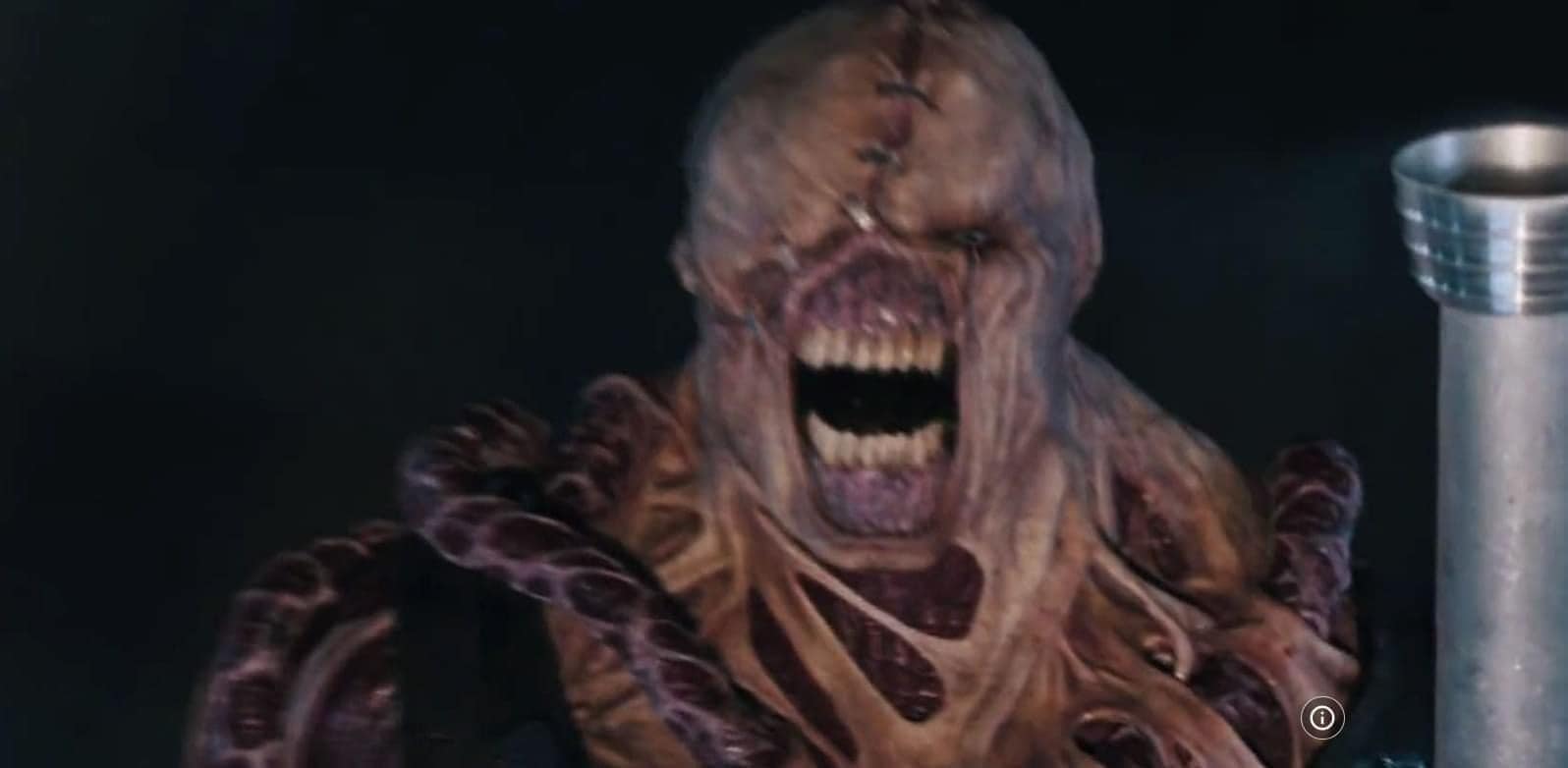
While Resident Evil: Apocalypse received mixed reviews from critics, with some praising its action and visual style while others criticized its thin plot and dialogue, it has found a dedicated fanbase among lovers of the franchise and action-horror enthusiasts. The film’s blend of sci-fi, horror, and action, combined with its faithful nods to the video game series, make it a memorable entry in the Resident Evil saga.
In the end, Resident Evil: Apocalypse is a film that knows its audience, delivering a non-stop thrill ride of zombie mayhem, intense action, and iconic characters. It’s a sequel that builds on the foundation of the first film, expanding the universe and raising the stakes in the battle against the undead and the sinister forces of the Umbrella Corporation.
